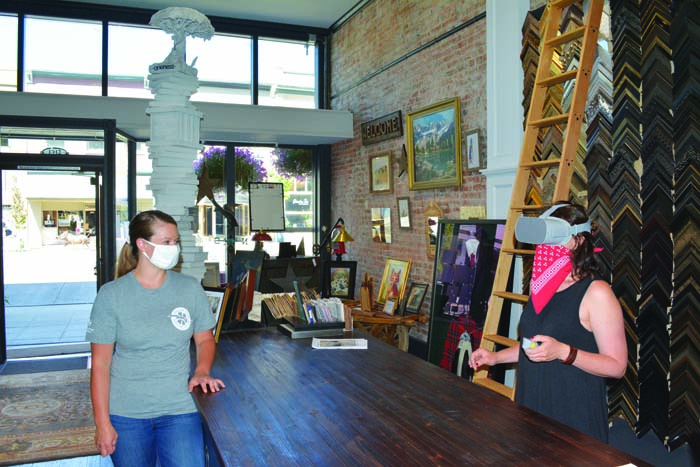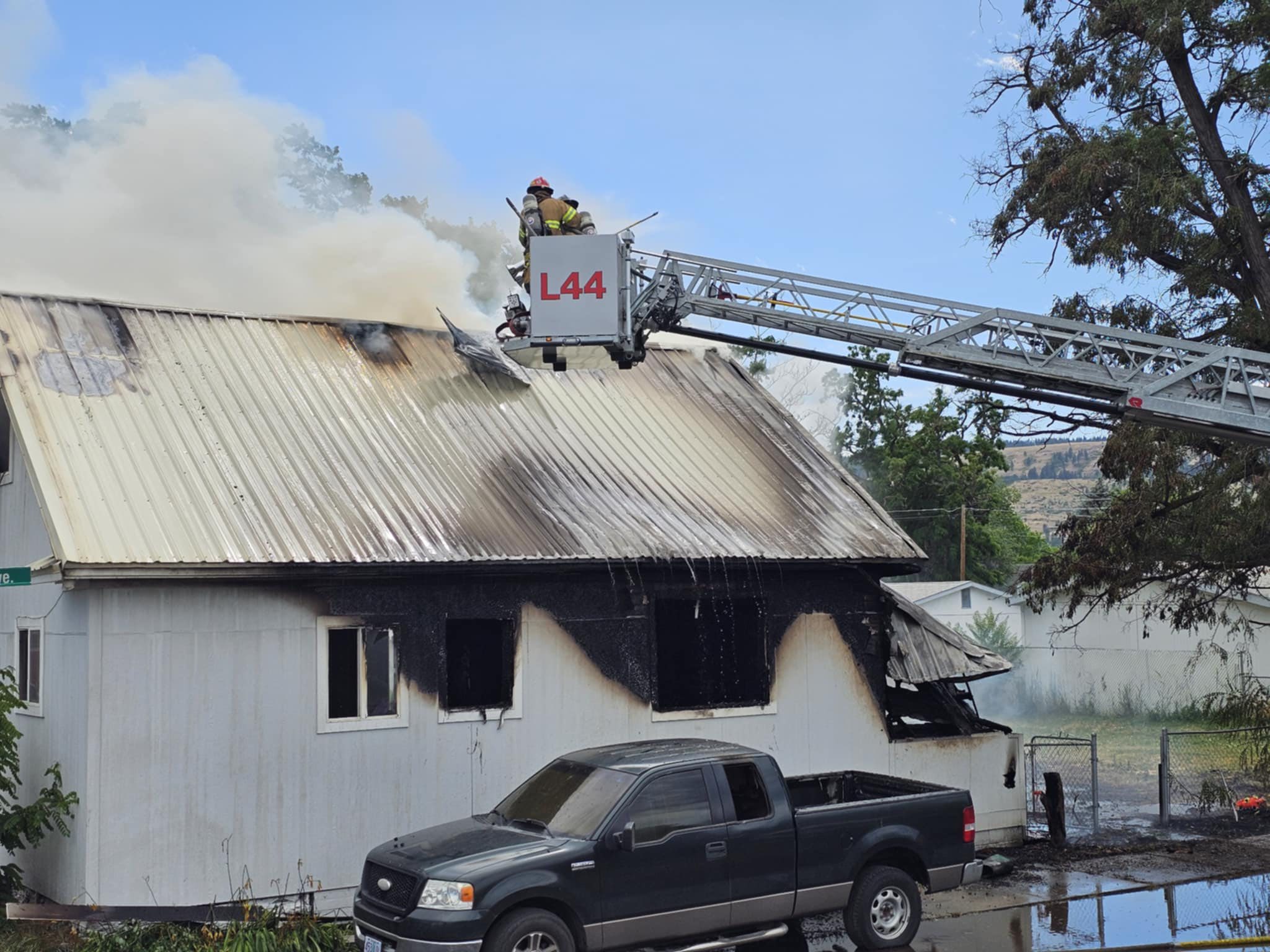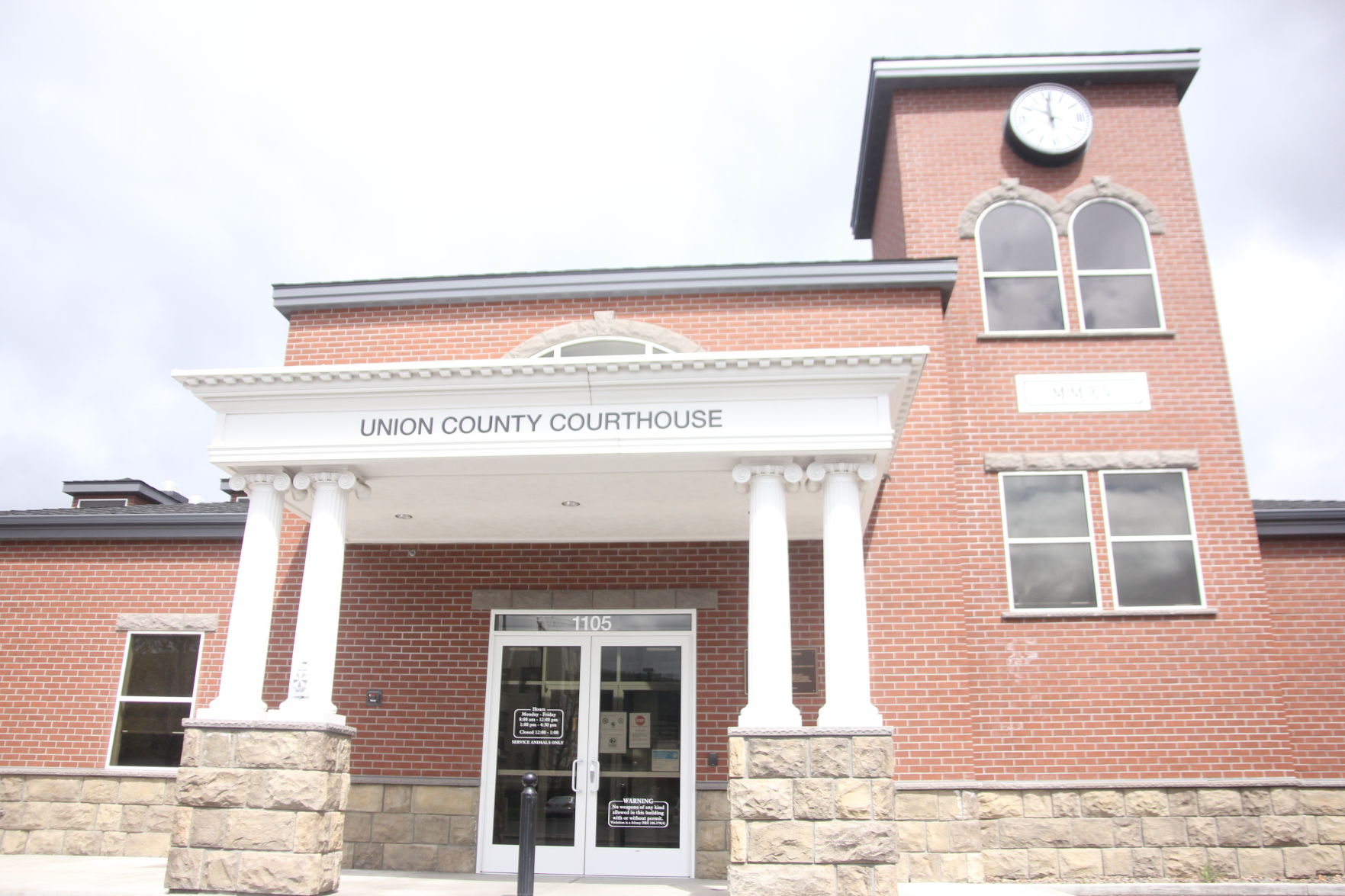Virtual visiting
Published 4:45 pm Friday, July 31, 2020

- Kate Reid, right, owner of the Royal Artisan gallery in Baker City, watches a virtual reality video using a headset that allows users to view the 3-D video in 360 degrees by moving their head. Lea Gettle, left, OTEC’s manager of administration and strategic services, helped introduced Reid to the technology.
BAKER CITY — The gadget in Joe Hathaway’s hands looked like it could be a prop from a “Star Wars” movie except this device, a sort of oversized pair of goggles, actually worked.
When you snug its elastic strap over your head, it can put you in a speedboat zinging across Phillips Reservoir, an experience lacking only the cool spray spattering your cheeks.
Or you can take a run through fresh powder at Anthony Lakes Ski Area. While wearing shorts and a T-shirt instead of a heavy, insulated parka.
The term for the technology is “virtual reality,” said Hathaway, communications coordinator for Oregon Trail Electric Cooperative. But the scenes are real. The virtual part is that you’re not sitting in the boat or grasping the ski poles.
The device allows you to see what the cameras saw when they captured the images. You can also tilt your head to experience the same 360-degree view as if you were actually there. You can turn around and see the boat’s wake. Or glance back and see the cloud of snow still lingering in the air — something not recommended when you’re actually skiing toward actual trees.
This virtual reality experience is part of OTEC’s effort to help boost the economies of the four counties where it supplies electricity — Baker, Union, Grant and Harney.
OTEC, with financial assistance from motel room taxes from those counties and from Travel Oregon, has produced a series of videos that showcase what each county offers to tourists and to prospective residents and business owners.
Another video touts the region’s agriculture industry.
Although each video can be viewed in 3-D with a compatible headset, allowing for the realistic full-range view, 2-D versions of the videos are available on OTEC’s website, www.economicdevelopment.otec.coop
Hathaway said many visitors centers and other tourism facilities around the nation have 3-D headsets, and OTEC will make the videos available as widely as possible.
“This is a really innovative way for us to differentiate ourselves from other rural communities,” said Lea Gettle, OTEC’s manager of administration and strategic services. “We want to put our communities on a pedestal.”
OTEC’s venture into virtual reality started in early 2019 when the cooperative, based in Baker City, contracted to produce three safety-related videos, including one that shows how the cooperative’s crews and emergency responders would deal with a situation in which a vehicle crashes into a power pole.
Around the same time, OTEC hired the Golden Shovel Agency, a Minnesota company that contracts with electric cooperatives and other customers, to make the videos for each county in OTEC’s service area.
Those videos are a key part of OTEC’s emphasis on promoting the four-county region both as a vacation destination and a desirable place to live, work and own a business, Gettle said.
Although OTEC started the video campaign about a year before the coronavirus pandemic began, Gettle said she believes there is a fortuitous aspect to the coincidental timing.
With many businesses in the region suffering from the dramatic decline in tourism — one of the top three industries in each of the four counties — Gettle said OTEC was poised to unveil the promotional videos with a goal of helping to revive the industry.
She understands that attracting hordes of tourists isn’t necessarily desirable now, with the pandemic continuing to spread. But Gettle said OTEC officials are glad the videos were ready.
“We’re just happy that we had already started this project and could deploy it to help our communities,” she said. “We really think our virtual tours are going to be an important piece for attracting visitors once everything opens up. We’re hoping that it’s going to give people a taste of the beauty and amenities that our region offers so that they’ll plan their next vacation here.”
Gettle is optimistic that OTEC’s promotional videos also will entice people to consider the region as a place to live and work.
The videos, in addition to taking viewers to outdoor recreation spots such as Phillips Reservoir and Anthony Lakes, also include tours of local businesses.
Gettle said she’s read stories during the pandemic predicting the upheaval could provoke a migration from large cities to rural areas, in particular among workers who can telecommute.
“There’s a greater ability for people to work from home,” she said.
Gettle said she believes OTEC’s four counties, with their relatively low cost of living and outdoor amenities, could prove attractive to workers, or business owners, who want to move.
“We’re going to be positioned really well,” she said. “With the videos we’re putting our best foot forward.”
Gettle said the four county-specific videos cost $6,000 each.








